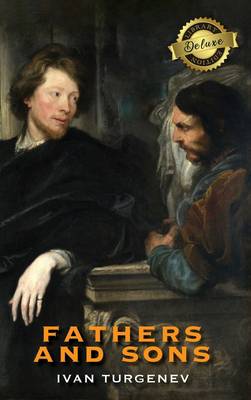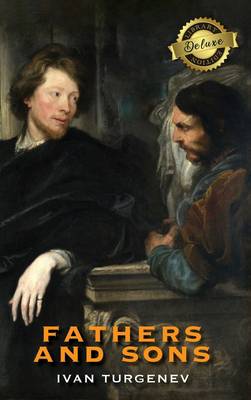
- Retrait gratuit dans votre magasin Club
- 7.000.000 titres dans notre catalogue
- Payer en toute sécurité
- Toujours un magasin près de chez vous
- Retrait gratuit dans votre magasin Club
- 7.000.0000 titres dans notre catalogue
- Payer en toute sécurité
- Toujours un magasin près de chez vous
Description
After graduating from the University of Petersburg, Arkady Kirsanov returns home to his father, Nikolay, with his friend, Bazarov. But Nikolay's brother, Pavel, soon becomes upset by the strange new philosophy called "nihilism" which the young men, especially Bazarov, advocate. Nikolay begins to feel uneasy around his son. To complicate this, Nikolay has taken a servant, Fenechka, into his house to live with him and has already had a son by her. Arkady and Bazarov visit a neighbouring province where they meet two women who begin to pull them apart.
Turgenev wrote Fathers and Sons as a response to the growing cultural schism that he saw between liberals of the 1830s and 1840s, and the growing nihilist movement. Both the nihilists (the "sons") and the 1830s liberals (the "fathers") sought Western-based social change in Russia. Additionally, these two modes of thought were contrasted with the Slavophiles, who believed that Russia's path lay in its traditional spirituality. Turgenev's novel was responsible for popularizing the use of the term nihilism, which became widely used after the novel was published.
Spécifications
Parties prenantes
- Auteur(s) :
- Traducteur(s):
- Editeur:
Contenu
- Nombre de pages :
- 216
- Langue:
- Anglais
Caractéristiques
- EAN:
- 9781774765357
- Date de parution :
- 15-03-22
- Format:
- Livre relié
- Format numérique:
- Genaaid
- Dimensions :
- 152 mm x 229 mm
- Poids :
- 489 g

Les avis
Nous publions uniquement les avis qui respectent les conditions requises. Consultez nos conditions pour les avis.






